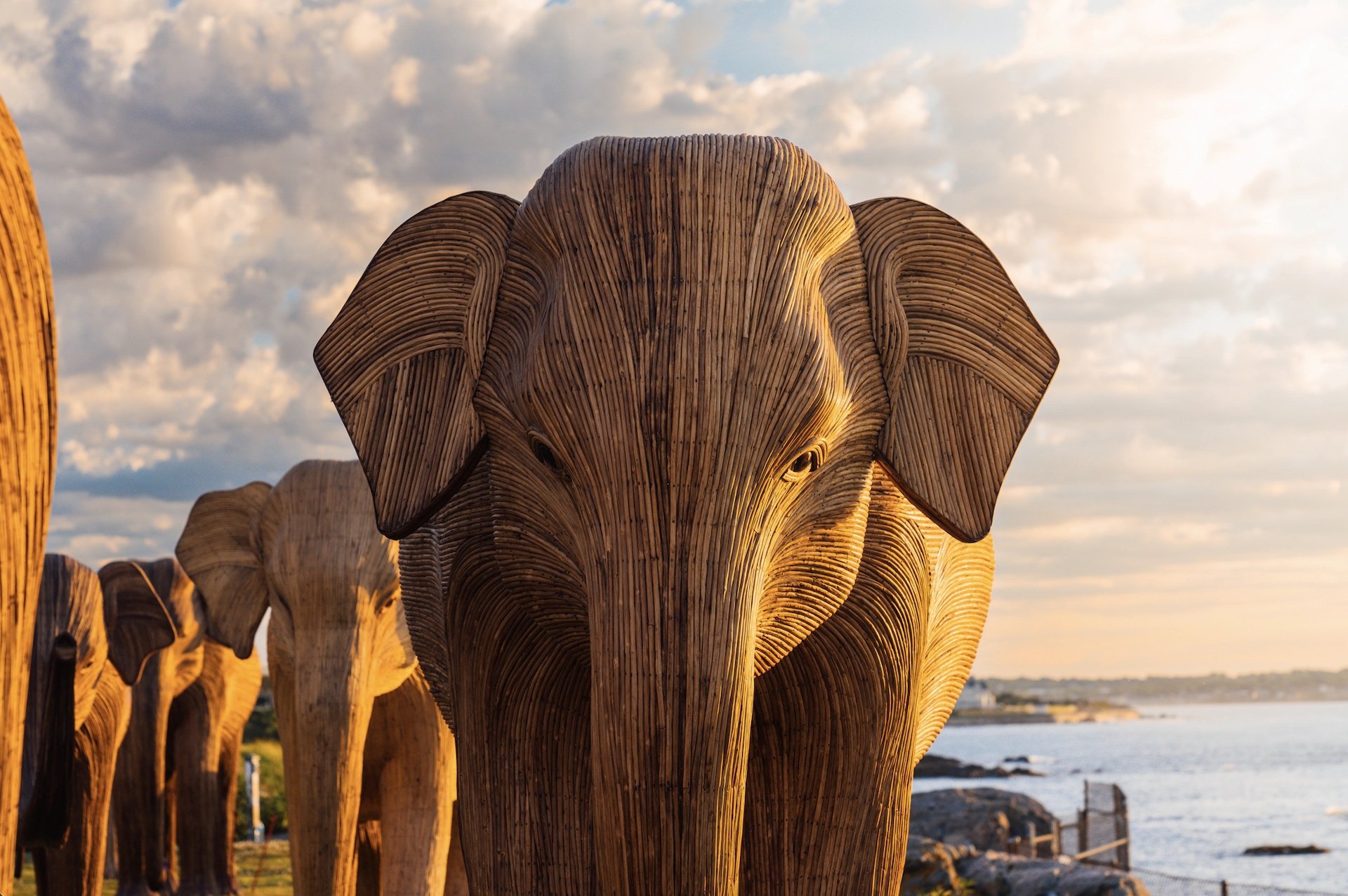
Jamaica Bay-Rockaway Parks Conservancy on Parade with Great Elephant Migration
Jamaica Bay-Rockaway Parks Conservancy on Parade with Great Elephant Migration
Jamaica Bay-Rockaway Parks Conservancy on Parade with Great Elephant Migration

Courtesy Elephant Family USA and Newport Restoration Foundation
This September, the Meatpacking District in Manhattan is welcoming an unusual herd of visitors – wholly unlike the throngs of tourists that typically populate the cobblestone boulevards. The Great Elephant Migration, an enormous art installation consisting of 106 life-sized Indian elephant sculptures, will move into residency on 9th Avenue, between 13th and 14th Streets. They are arriving in partnership with Elephant Family USA, an international non-governmental organization dedicated to promoting coexistence between humans and wildlife. The elephant sculptures were most recently on the coast of Rhode Island, before migrating south.
Programming to honor and celebrate the mission of The Great Elephant Migration will include a September 10th panel discussion on conservation and coexistence – featuring Jamaica Bay-Rockaway Parks Conservancy’s executive director, Terri Carta!
The discussion will challenge audience members to revisit longstanding notions of “conservation” as the separation of the wild and human worlds, and instead think of humans and wildlife existing on one, integrated "gradient" of coexistence, tell the socioeconomic and political empowerment stories of the tribes, and through an exploration of the work of the Jamaica Bay-Rockaway Parks Conservancy, provide context for how New Yorkers coexist with the natural world.
What: Coexistence and Community from the Nilgiris to New York Panel
When: Tuesday, September 10 | 9 am
Where: The Maker's Studio at Chelsea Market | 448 West 16th Street

Courtesy Elephant Family USA and Newport Restoration Foundation
Even though wild elephants are oceans away, these sculptures and their creators bring at least two relevant parallels to caring for nature in New York City:
Removing invasives and restoring native plants – the sculptures of Great Elephant Migration are made from Lantana camara, one of the world’s top invasive weeds. This fast growing, noxious shrub has a stranglehold on over 74 million acres of India’s Protected Areas. The use of lantana to create the elephants helps remove the weed from protected areas, leaving wildlife more space to roam. This practice jibes with JBRPC’s work, alongside state agencies and community groups, to remove invasive plants across 10,000 acres of NYC parklands, and restore native plant communities, including flood and salt-tolerant plants. Stronger native plant ecologies in New York City create better habitat for migratory birds and improve our communities’ ability to recover from floods.
Creating a local workforce, honoring local environmental knowledge – The artisans who create the elephant sculptures are residents of Gudalur, in the Nilgiri Hills, where they coexist with the real elephants their art depicts. Roughly 150 elephants share the space with 250,000 people. Already over $500,000 has been generated by their art, which combined with the large-scale lantana removal, puts it on track to be the biggest sustainable indigenous enterprise in India. JBPRC’s effort to create a skilled, knowledgeable – and local – environmental workforce is similar, even if the work itself is different. The Wetlands Fellowship trains the next generation of wetland managers, building skills and defining a career path for young adults within the diverse communities surrounding Jamaica Bay. The people managing New York’s open spaces should come from the neighborhoods closest to them.

Courtesy Meatpacking Business Improvement District
Caring for our environment and the creatures within it is a collective effort. JBRPC was founded to bring community members together, to protect and enhance our open spaces. Our free public programming, ecological restoration, education and workforce development — all of this is aimed at building a stronger relationship with natural lands. Without identifying ourselves as part of nature, rather than apart from it, we cannot be effective stewards.
